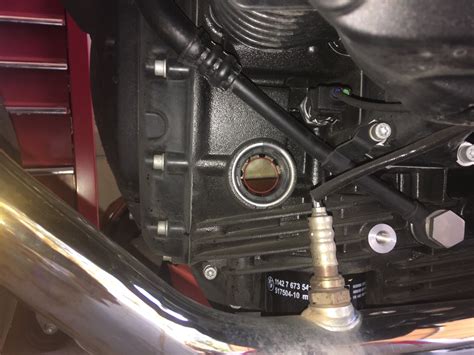Burning oil in your BMW can be a sign of a serious problem. If left unchecked, it could lead to a costly repair bill. That’s why it’s important to know how to tell if your BMW is burning oil. Fortunately, there are a few simple ways to check.
The most reliable way to determine if your BMW is burning oil is to check the dipstick oil level regularly. If the level is low, then your BMW may be burning oil. You should also look for any signs of oil stains or smoke coming from the exhaust. Additionally, pay attention to any changes in engine performance and check the oil level in the oil pan.
If the oil level is low or you notice oil stains or smoke coming from the exhaust, then it’s time to take your BMW to a qualified technician who can properly diagnose the issue. They will be able to determine the underlying cause of the oil burning and recommend the necessary repair.
It’s also important to remember that BMWs require frequent oil changes and regular maintenance to keep them running smoothly. This will help ensure that the engine is not burning oil unnecessarily and can help prevent costly repairs in the future.
By following these tips, you’ll be able to tell if your BMW is burning oil and take the necessary steps to resolve the issue. If you have any further questions or concerns, you should always consult with a qualified technician before taking any further action.
What are the Signs of a BMW Burning Oil?
If you drive a BMW, you may wonder if your car is burning oil. In order to figure that out, you need to know the signs of a BMW burning oil. There are a few signs you can look for to determine if your BMW is burning oil.
One of the most obvious signs is the burning oil smell coming from the engine. This is a result of oil leaking from the engine and burning off when the engine is hot. You may also notice smoke coming from the engine, as this is another sign of burning oil.
The next sign is the engine oil level. When oil is leaking from the engine, it will cause the oil level to drop. You can check the oil level by opening the hood and looking at the dipstick. If the level is low, then it is likely that your BMW is burning oil.
The last sign is the exhaust. If you notice dark exhaust smoke coming from the tailpipe, this is a sign that your BMW is burning oil. This is because the oil is leaking from the engine and burning off as it exits through the exhaust.
There are a few other signs that your BMW may be burning oil, such as increased oil consumption and decreased fuel economy. However, these are less obvious signs and may require a deeper look into your BMW’s engine.
If you notice any of the above signs, then it is a good idea to take your BMW to a mechanic and have them inspect the engine. They can diagnose the issue and determine if your BMW is burning oil. They can then replace any faulty parts and get your BMW running properly again.
In conclusion, if you notice any of the signs of a BMW burning oil, it is important to take your car to a mechanic and have them inspect the engine. This will ensure that your BMW is running properly and that all of the components are in working order.
What Can Cause a BMW to Burn Oil?
BMW vehicles are renowned for their robust and reliable engines, however, there are a few things that can cause your BMW to burn oil. If you own a BMW and are wondering how to tell if it is burning oil, it is important to understand what can cause it to happen in the first place.
The most common culprits of an oil burning BMW typically stem from a worn out engine, a bad valve stem seal, or a faulty piston ring. If you notice an increase in oil consumption, you may want to take a look at these components to see if they are functioning correctly.
A worn out engine can cause an increase in oil burning due to the buildup of sludge, deposits, and other debris that can reduce the efficiency of the engine. This can also cause the engine to overheat, resulting in more oil burning. A bad valve stem seal can also cause your BMW to burn oil, as the seal can become cracked or damaged, resulting in oil leaking into the combustion chamber.
Finally, a faulty piston ring can cause oil to leak into the combustion chamber, resulting in more oil burning. Piston rings are responsible for sealing the combustion chamber, so if they become damaged or worn out, oil can leak through and cause an increase in oil burning.
It is important to note that an oil burning BMW can also be caused by other factors, such as a failed fuel injector or a clogged air filter. If you are unsure what is causing your BMW to burn oil, it is best to take it to a qualified mechanic who can inspect the vehicle and diagnose the problem. Additionally, you should also check the oil level regularly to make sure it is at the correct level.
In conclusion, there are several potential causes of an oil burning BMW. The most common causes are a worn out engine, faulty valve stem seal, or faulty piston ring. If you are unsure what is causing your BMW to burn oil, it is best to take it to a qualified mechanic who can inspect the vehicle and diagnose the problem. Additionally, you should also check the oil level regularly to make sure it is at the correct level.
It is recommended to check for oil burning at least once a month, or every 3,000 miles.
Signs of oil burning in a BMW include the check engine light coming on, an increase in oil consumption, and unusual smoke coming from the exhaust.
Yes, burning oil can reduce fuel efficiency and cause decreased performance.
Oil burning can be prevented by regularly changing the oil and filter and using the proper weight and viscosity of oil in your BMW.
If oil burning is ignored, it can lead to severe engine damage and costly repairs.
Oil burning can be caused by worn piston rings, valve seals, or faulty turbochargers.
You can check for oil burning by checking the oil level regularly or looking for signs such as smoke coming out of the exhaust.
Yes, it is recommended to take your BMW to a mechanic if you suspect oil burning.
It depends on the warranty; you should check with the dealership or manufacturer for more information.
You should always use the correct weight and viscosity oil recommended by the manufacturer to prevent oil burning.






